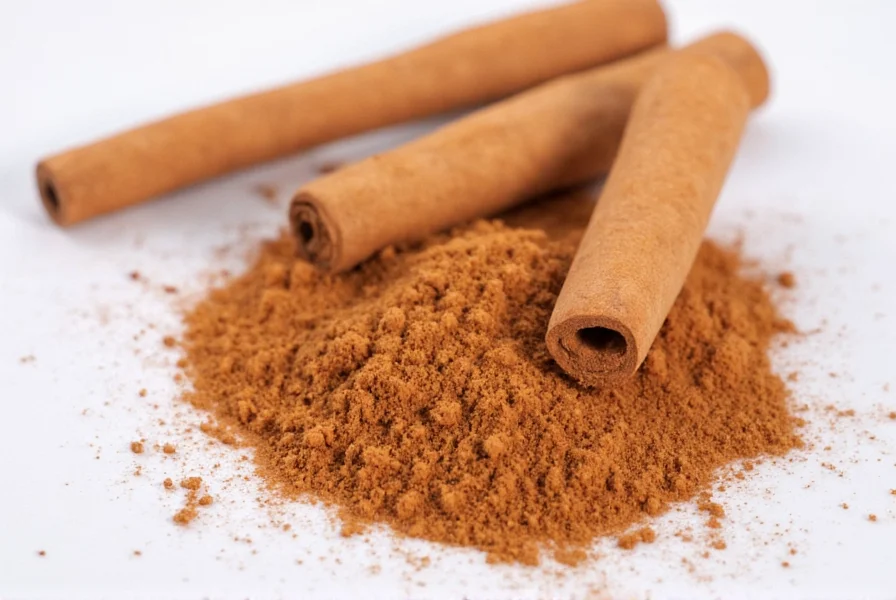Homeowners seeking natural pest control solutions often turn to household spices like cinnamon. This approach offers a chemical-free alternative to commercial insecticides, making it particularly appealing for families with children or pets. Understanding the science behind cinnamon's ant-repelling properties helps optimize its effectiveness while managing expectations about its limitations.
The Science Behind Cinnamon's Ant-Repelling Properties
Ants navigate using pheromone trails—chemical signals they deposit as they move. These invisible pathways guide colony members to food sources and back to the nest. Cinnamon contains volatile compounds, primarily cinnamaldehyde, which mask these pheromone trails. When ants encounter cinnamon barriers, they become disoriented and avoid crossing them.
Research published in the Journal of Economic Entomology demonstrates that cinnamon essential oil exhibits significant repellent activity against common household ants. The study found that concentrations as low as 5% effectively deterred ant movement for up to 24 hours. Unlike synthetic pesticides, cinnamon doesn't kill ants but creates temporary no-go zones by exploiting their sensitive olfactory systems.

Cinnamon Forms and Their Effectiveness
Not all cinnamon applications work equally well. Understanding the differences between available forms helps maximize results:
| Cinnamon Form | Repellent Duration | Best Application Areas | Preparation Method |
|---|---|---|---|
| Ground Cinnamon | 4-12 hours | Dry indoor surfaces | Sprinkle 1/4 inch barrier |
| Cinnamon Essential Oil | 24-72 hours | Entry points, problem areas | Mix 15 drops per 16oz water in spray bottle |
| Cinnamon Sticks | 1-3 days | Cabinets, pantry shelves | Place strategically near food storage |
| Cinnamon Extract | 8-24 hours | Temporary outdoor barriers | Mix with water for spraying |
Proper Application Techniques for Maximum Effectiveness
Simply sprinkling cinnamon randomly won't yield optimal results. Effective natural ant control requires strategic placement:
- Identify entry points: Carefully observe ant trails to locate where they're entering your home. Common entry points include window frames, door thresholds, and cracks in foundations.
- Create continuous barriers: Apply cinnamon in an unbroken line at least 1/4 inch thick. Gaps in the barrier allow ants to bypass the repellent.
- Reapply after disturbances: Rain, foot traffic, or cleaning will require reapplication. Essential oil solutions typically last longer than dry powder.
- Combine with other natural deterrents: For enhanced effectiveness, pair cinnamon with vinegar solutions or diatomaceous earth in a multi-pronged approach.
Limitations of Cinnamon as Ant Control
While cinnamon offers a safe, natural solution for minor ant problems, it has significant limitations that homeowners should understand:
Cinnamon primarily affects worker ants but doesn't eliminate the colony's reproductive members. It creates temporary barriers rather than solving the underlying infestation. Heavy rain or high humidity significantly reduces cinnamon's effectiveness, especially in outdoor applications. For established colonies or severe infestations, cinnamon alone won't provide complete control.
Professional pest control entomologists note that cinnamon works best as a preventive measure or for minor ant problems. When ants have already established nests inside walls or foundations, more comprehensive solutions become necessary. The temporary nature of cinnamon barriers means consistent reapplication is required—often daily in high-traffic areas.

When to Consider Alternative Solutions
While natural remedies like cinnamon appeal to many homeowners, certain situations warrant alternative approaches:
- Severe infestations: When ants number in the hundreds or appear consistently despite barrier efforts
- Structural damage: Carpenter ants or other species that damage wood require professional intervention
- Food safety concerns: In commercial kitchens or food preparation areas where strict pest control protocols apply
- Persistent problems: When ants return within hours of application despite proper barrier techniques
In these cases, integrated pest management approaches combining exclusion techniques, targeted baits, and professional assessment typically yield better long-term results. Many pest control professionals now offer eco-friendly options that minimize chemical use while addressing the root cause of infestations.
Safety Considerations for Household Use
Cinnamon's natural origin makes it safer than many commercial pesticides, but proper usage matters:
Cinnamon essential oil can irritate skin and eyes in concentrated form—always dilute before spraying. While generally safe around pets, large quantities of ground cinnamon can cause respiratory irritation if inhaled. Keep cinnamon barriers away from food preparation surfaces to avoid flavor contamination. Note that cinnamon doesn't distinguish between pest ants and beneficial ant species, so outdoor use might affect garden ecosystems.
For households with young children, consider using cinnamon sticks in areas inaccessible to kids rather than loose powder. The sticks provide slower-release repellency without creating inhalable dust. When using cinnamon solutions near plants, test on a small area first as concentrated oils may damage certain foliage.
Practical Tips for Sustainable Ant Management
Effective ant control combines repellents like cinnamon with environmental management:
- Seal entry points with caulk to prevent access
- Maintain clean surfaces free of food residues
- Store food in airtight containers
- Fix plumbing leaks that create moisture ants seek
- Trim vegetation away from building exteriors
By addressing the conditions that attract ants while using cinnamon as a temporary barrier, homeowners can achieve more sustainable results. Regular monitoring helps determine when reapplication is needed and whether the approach is working effectively for your specific ant problem.
Frequently Asked Questions
Does cinnamon kill ants or just repel them?
Cinnamon primarily repels ants rather than killing them. The active compounds disrupt ant communication and navigation without being lethal. While high concentrations of cinnamon essential oil may kill some ants on direct contact, its main function is creating barriers that ants avoid crossing.
How long does cinnamon keep ants away?
The effectiveness duration varies by application method. Ground cinnamon typically deters ants for 4-12 hours before needing reapplication. Cinnamon essential oil solutions create barriers lasting 24-72 hours. Environmental factors like humidity, foot traffic, and cleaning activities significantly impact how long the repellent effect lasts.
Is cinnamon safe to use around pets?
Cinnamon is generally safe around pets when used appropriately. Avoid direct contact with pets' eyes or nose. Large quantities of ground cinnamon can cause respiratory irritation if inhaled, so keep pets away during application. Cinnamon essential oil should always be diluted before use near pets. Consult your veterinarian if you have specific concerns about your pet's sensitivity.
Which type of cinnamon works best against ants?
Ceylon cinnamon (true cinnamon) and Cassia cinnamon both work as ant repellents, but Cassia contains higher concentrations of cinnamaldehyde—the primary active compound. For maximum effectiveness, cinnamon essential oil provides the most concentrated repellent properties. Ground cinnamon works well for temporary barriers but requires more frequent reapplication than oil-based solutions.
Can I use cinnamon to eliminate an ant colony?
Cinnamon alone cannot eliminate an established ant colony. It creates temporary barriers that repel worker ants but doesn't reach the queen or reproductive members deep within the nest. For complete colony elimination, professional pest control methods targeting the entire colony structure are typically necessary. Cinnamon works best as a preventive measure or for managing minor ant problems.











 浙公网安备
33010002000092号
浙公网安备
33010002000092号 浙B2-20120091-4
浙B2-20120091-4